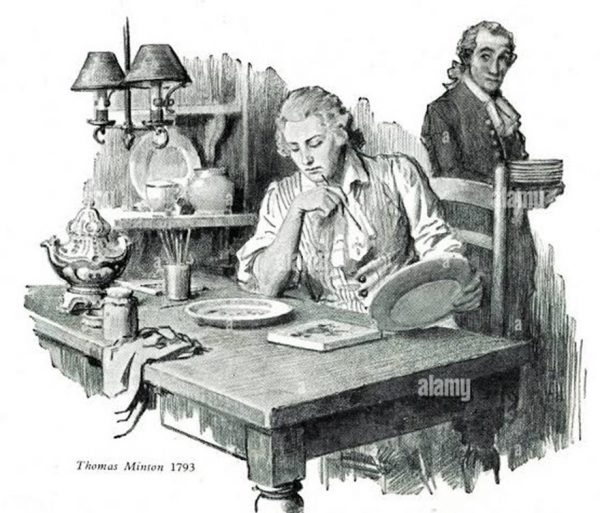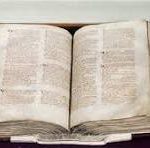The 1790s was a time of major changes to the geography of Stoke with the cutting of two major transport facilities, first the turnpike road to Hanford (London Road) and then the canal from Stoke to Newcastle both opening up development opportunities in town. But first he had to grasp the opportunity to set up his own works as an ideal plot of land in the town of Stoke became available in 1793. It was in London Road with a good turnpike road. Later with a new canal the Stoke to Newcastle canal gave him direct acsess direct into his new factor in London Road – both for expoerts and the unloading of raw materials.
In 1796 Minton went into partnership with Joseph Paulson who was already producing china (porcelain containing bone ash) at a factory on land he purchased in 1792 just across the road from Minton.
The artical then continues with other partnership and the development of some of his best known early products. Thomas had two sons Thomas and Herbert both being taken into partnership. Thomas Webb decided to enter holy orders and in 1821 left Stoke. The title of the company known as Thomas Minton and Sons was dissolved and reverted back to the form of Thomas Minton. The termination of the partnership was brought about by the desire of Thomas Webb to study for the church. Subsequently, whilst he was the Rector of Durham, he gave the sum of £2,000 to be invested to provide a salary of a priest for the newly parish of Penkhull. It was his son, Samuel Minton who became the first incumbent of Penkhull Church.
Enough for now but this piece is just a shortened version of how the full article moves on to discribe the life of Thomas Minton. three x A4













Reviews
There are no reviews yet.